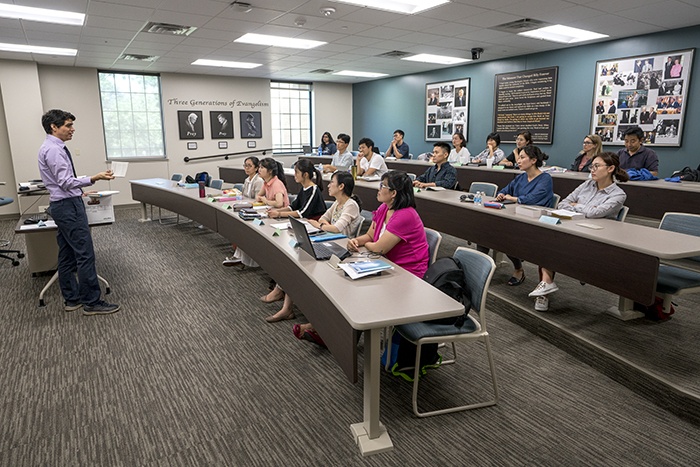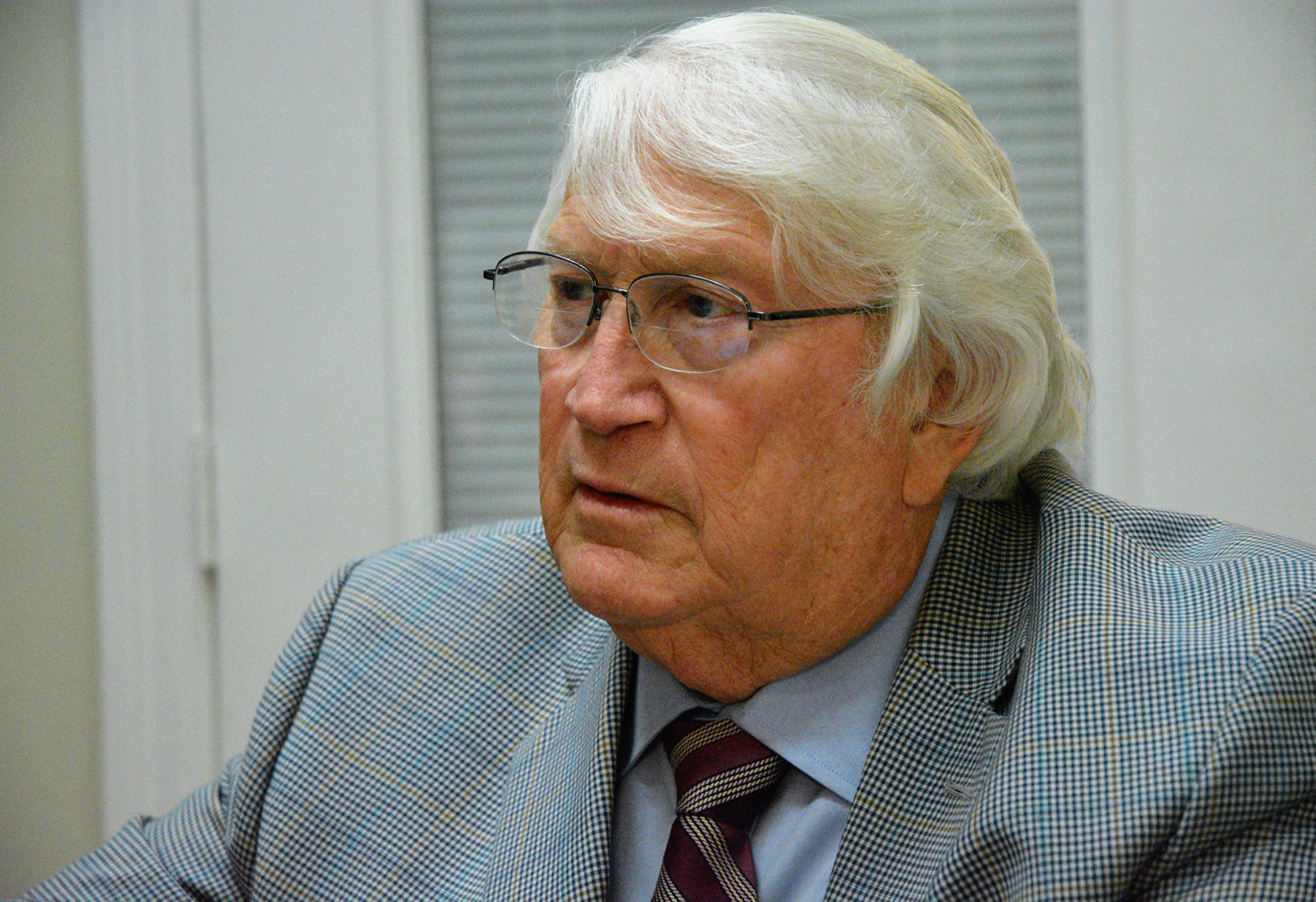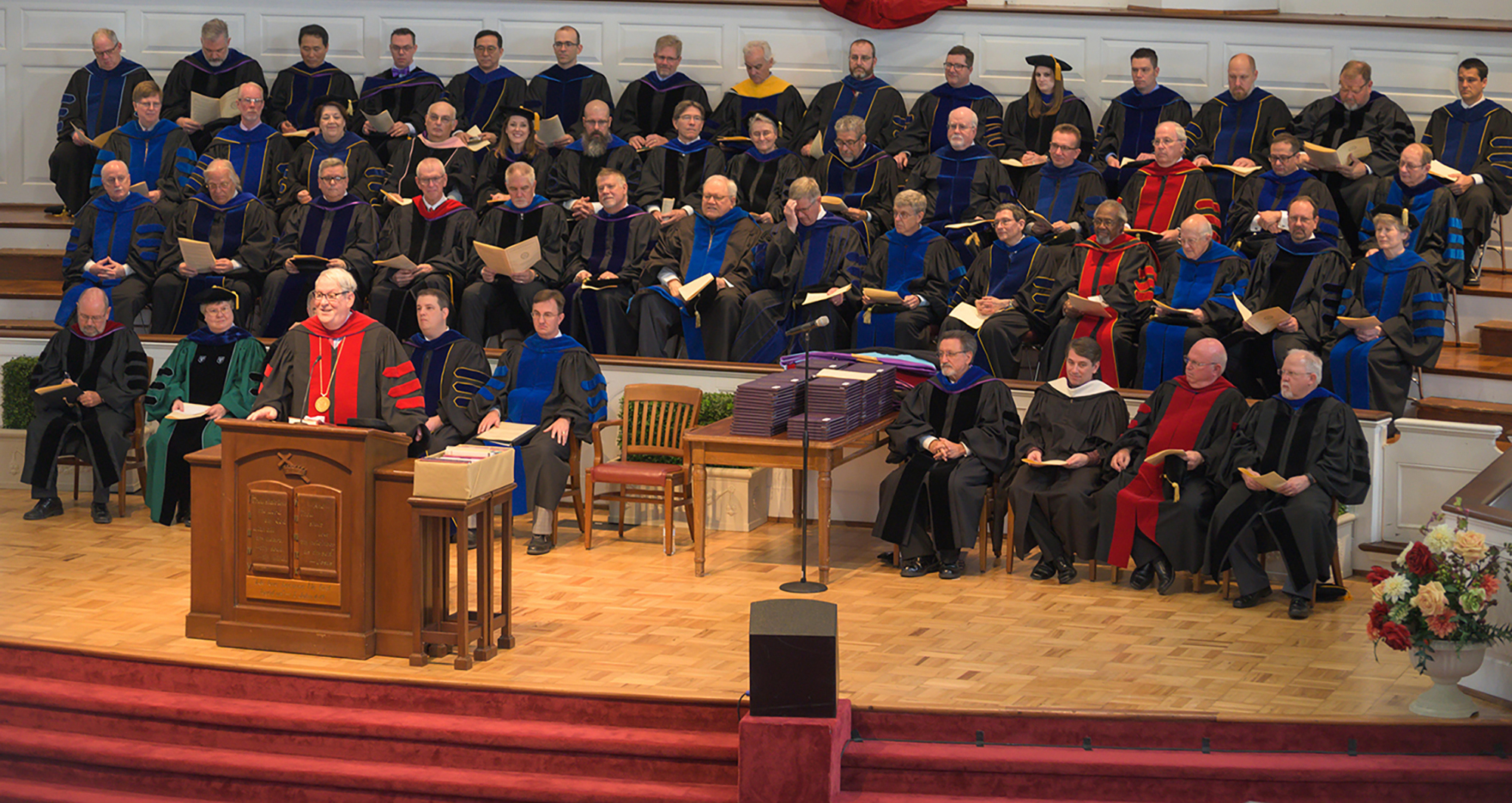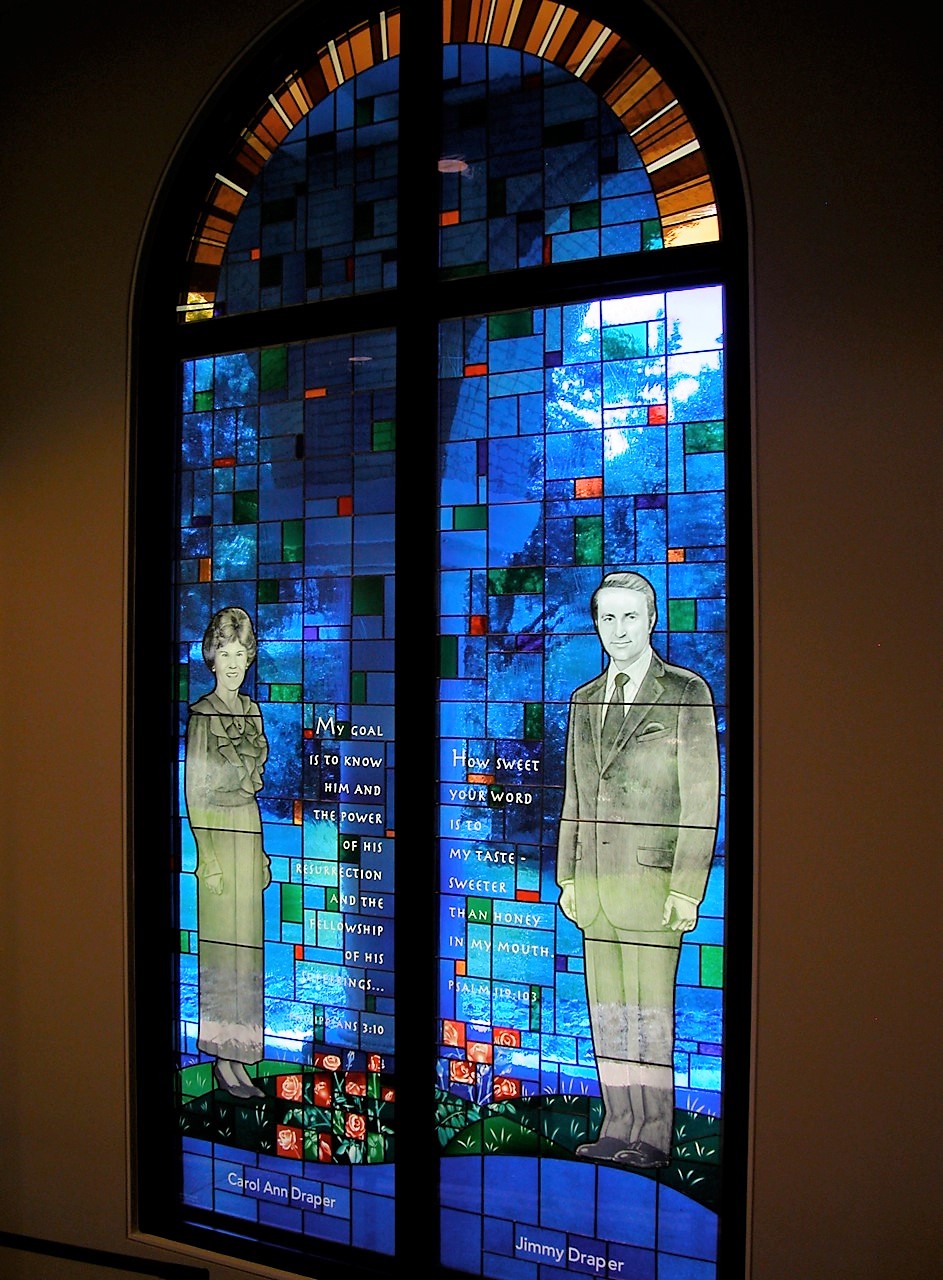 [1]
[1]Student’s letter shares Gospel with grandmother, others
By Alex Sibley
FORT WORTH, Texas (BP) — Last fall, Southwestern Baptist Theological Seminary Master of Divinity student Nakwon You was reminded never to underestimate the power of the Holy Spirit.
As part of Malcolm Yarnell’s Systematic Theology III course during the fall 2019 semester, You fulfilled a class assignment in a unique way. Yarnell, research professor of systematic theology, requires all of his students in the course to share the Gospel with someone who is lost, then “reflect upon that event in a theological way.” Yarnell says that several hundred people have been saved over that last 15 years because of this assignment.
 You desired to share the Gospel with his grandmother, for whom he and his family have been praying for more than a decade. Unfortunately, she lives in Korea, and You is unable to return there at this time. His solution: write her a letter about the Gospel.
You desired to share the Gospel with his grandmother, for whom he and his family have been praying for more than a decade. Unfortunately, she lives in Korea, and You is unable to return there at this time. His solution: write her a letter about the Gospel.
Due to his grandmother’s advanced age and poor health, You’s mother read the letter aloud to her and carefully shared the Gospel. After hearing the Gospel presentation, You’s grandmother “acknowledged the presence of Jesus Christ for the first time in her life and shared her desire to get to know Him more,” You said.
“I’m not sure if my grandmother is saved, but for her to say such a thing was simply a miracle to us,” he continued. “She struggles to even recognize any of our family members at this stage of her life, yet she was able to comprehend the concept of salvation.”
In light of his family’s persistent prayers for his grandmother, You said that “to see the Holy Spirit move in her heart like this was astonishing.”
You’s mother, “a faithful church member,” began to share this story with her friends at church. After reviewing the letter, these friends requested copies, and when You’s mother obliged, they took their copies of the letter to their own friends and family in order to present the Gospel to them.
“Last time I heard, there were about 8-12 people, and they have been sharing it regularly with their family members,” You said.
“If I’m being honest, I completely underestimated the power of the Holy Spirit,” You said. “I just did not expect God to move in such a way. My family is greatly encouraged by the Lord’s work and beyond grateful for the gift of salvation.”
When You shared this with Yarnell, his professor took to Twitter to share the news, concluding, “Praise the Lord!”
You replied, “Never underestimate the power of the Holy Spirit.”
**********
MBTS convocation addresses sufficiency of Scripture
By T. Patrick Hudson
KANSAS CITY, Mo. (BP) — In delivering the second installment of his “Truths Worth Contending For” series, president Jason Allen opened Midwestern Baptist Theological Seminary’s spring semester with an Academic Convocation message addressing the sufficiency of Scripture. The service took place in the Daniel Lee Chapel on Jan. 21.
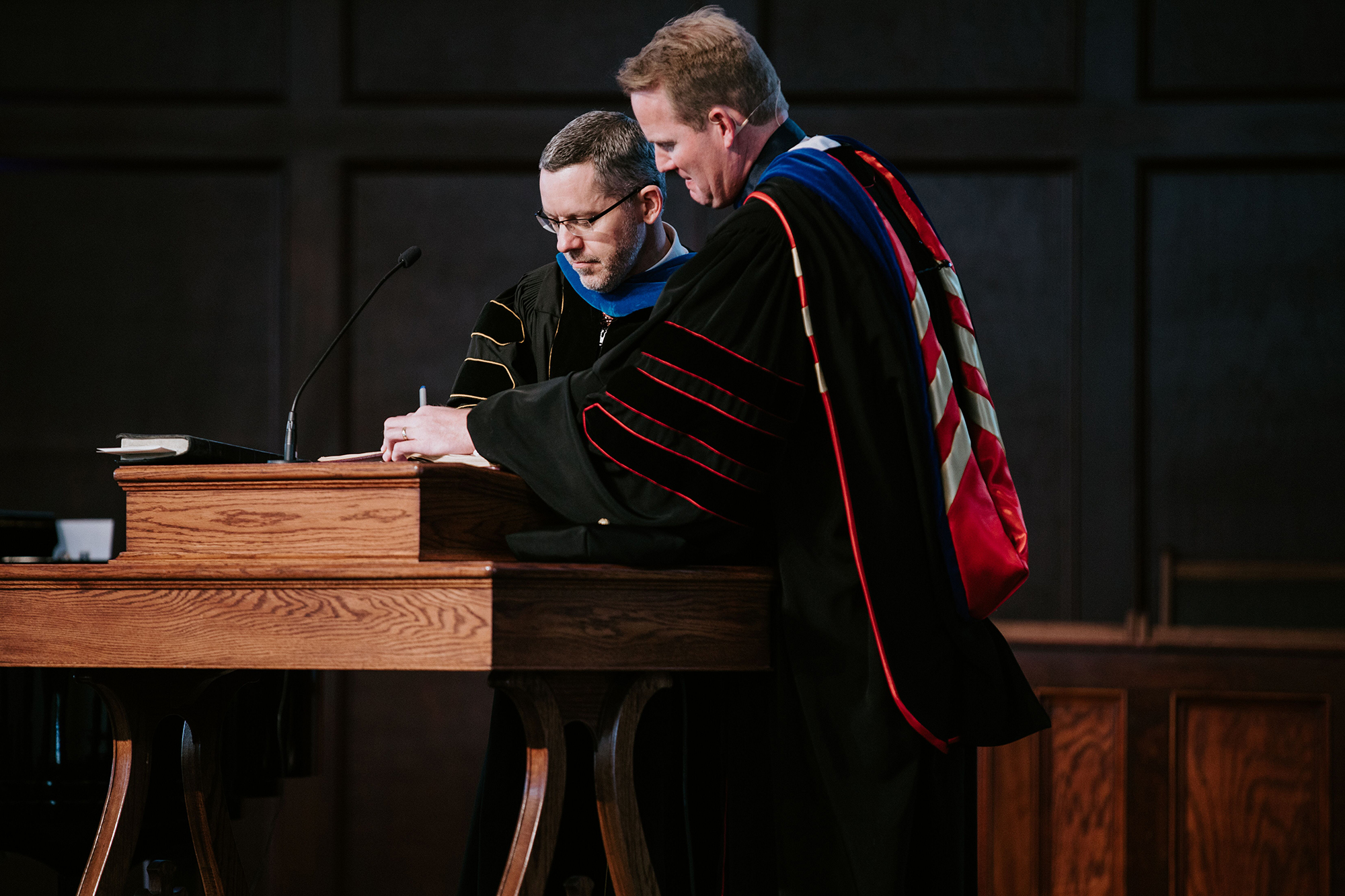 Additionally, newly elected seminary faculty member, Jason DeRouchie, signed the institution’s Articles of Faith during the service.
Additionally, newly elected seminary faculty member, Jason DeRouchie, signed the institution’s Articles of Faith during the service.
Allen’s first message of the 10-part “Truths Worth Contending For” series took place during the school’s December graduation service on Dec. 6, 2019, and focused on the inerrancy of God’s Word.
Now, in the series’ second message, Allen argued that believers should contend for the sufficiency of Scripture. Through an exposition of 2 Timothy 3:15-17, he fleshed out why sufficiency matters and outlined 10 application points about how Scripture is sufficient for believers.
Allen explained that if denying biblical inerrancy takes something out of students that nothing else can replace, then to deny sufficiency fails to put something in them. Denying inerrancy removes one’s confidence in the Bible, he added. Underemphasizing sufficiency fails to provide a fuller, more robust, more perennial confidence in the Bible.
One way that Satan can damage the church, Allen continued, is not necessarily by attacking the inerrancy of Scripture, rather it would be through the undermining of the sufficiency of Scripture.
“A subtle undermining of sufficiency questions the relevance of Scripture, the completeness of Scripture, the adequacy of Scripture, the power of Scripture,” Allen said. “This could wreak similar havoc and, indeed, does do similar damage in the body of Christ.”
Allen defined “sufficiency” from 2 Timothy 3:17 saying “that the Word of God, the inspired, inerrant Word of God is given to us, and with it the man of God, the woman of God, is adequate, equipped for every good work.”
The reason it matters to believers, Allen concluded, is that the Scriptures convey all truths necessary for Christian living and Christian ministry. Because it is inerrant—God’s Word is profitable to us for teaching Christian doctrine, the truth of Scripture, how to live the Christian life, and what Christians are to believe. This is all wrapped up with a promise in verse 17, that believers are “equipped to do every good work” as a result of Scripture’s sufficiency.
“You see, brothers and sisters, an errant Bible is an insufficient one,” Allen said. “A Bible that is not without error is a Bible that is not sufficient for Christian ministry.”
In this passage, Paul is telling Timothy that regardless of the difficult circumstances he’s facing, Scripture is enough. Allen said the same is true for modern-day believers.
“For us in this ministry moment and for every generation of Christian ministers, is it not good and fitting and right to, again and again, reassert and re-prioritize the sufficiency of Scripture? Our churches may need much, but what they need most of all is the preaching and teaching of God’s Word. Our children may need much, but what they need most of all is the teaching of God’s Word. Our communities may need much, but what they need most of all is the preaching of God’s Word.”
Prior to Allen’s message, DeRouchie signed the institution’s Articles of Faith, which consists of the Baptist Faith and Message 2000, the Chicago Statement on Biblical Inerrancy, the Danvers Statement on Biblical Manhood and Womanhood, and the Nashville Statement on biblical sexuality.
DeRouchie, who serves as research professor of Old Testament and biblical theology, was elected by the Board of Trustees in October 2019. As such, by signing the book, he promised to uphold Midwestern Seminary’s Articles of Faith.
To view Allen’s message in full, visit https://www.mbts.edu/2020/01/2020-spring-convocation-with-dr-jason-allen/.
**********
Mandrell: When God calls, ‘expect the unexpected’
By Marilyn Stewart
NEW ORLEANS — Ben Mandrell, LifeWay president and CEO, told listeners at New Orleans Baptist Theological Seminary’s Leavell Chapel, Jan. 23, that when it comes to God’s call, they can “expect the unexpected.”
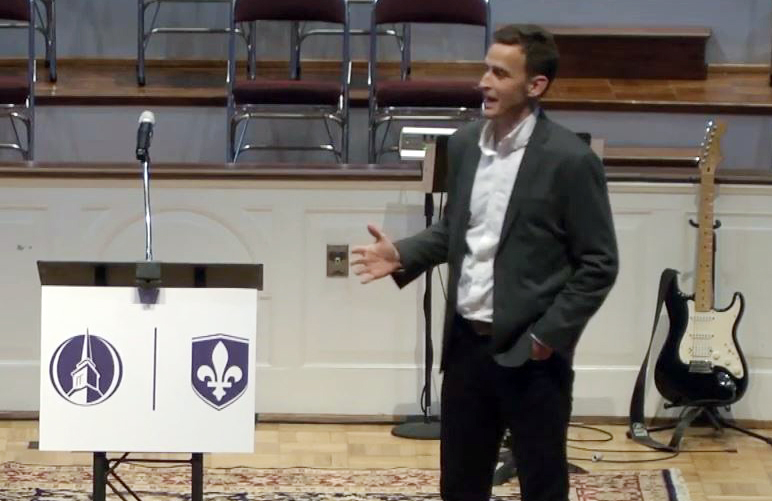
“You will likely have no idea where God is going to take you in this life,” Mandrell said. “If anything is clear from scripture, it is that we cannot predict what God is planning to do in your life.”
Drawing from 1 Samuel 9, Mandrell pointed to Saul’s life before he was anointed king. After searching days for his father’s lost donkeys, Saul sought out the prophet Samuel’s help, not knowing that Samuel would anoint him king.
“There are no random circumstances with God,” Mandrell explained, noting that Saul had set out only to fulfill his duties that day when he found himself before Samuel. “You often will have no clue the moment before God does something in your life,” Mandrell said.
Believers will feel ill-equipped for the task God gives them, Mandrell stated as a second principle.
“God seems to serve up something that feels larger than our ability; there’s a gap between skill-set and the size of the task. That’s where faith grows,” Mandrell said. “It’s uncomfortable, but wherever there’s a gap, that’s the space where God does the greatest work in your life.”
In the “gaps,” a believer must rely on God rather than personal ability, Mandrell said, adding, “God likes to use people with gaps.”
Mandrell pointed to 1 Samuel 10:9 and noted that God did not give the newly anointed king a fresh idea or a “pat on the back,” but instead gave Saul what he needed most – “a changed heart.” Mandrell added that God desires most to grow a believer’s faith.
The third principle Mandrell offered is that God will empower those whom He calls.
“You will surely feel the filling of the Holy Spirit,” Mandrell said.
Mandrell pointed to the beginning of the church era at Pentecost when God’s Spirit spurred the church to grow in bold witness.
“The Gospel would go forth through those ordinary people that were now filled with the Holy Spirit,” Mandrell said. “God supplies the power to His people to accomplish the work He has assigned to them.”
When discouragement comes, Mandrell warned, a believer can be thankful that God has promised to empower them through the Holy Spirit.
In conclusion, Mandrell pointed to Gateway Seminary President Jeff Iorg’s book, “Is God Calling Me?” to answer two questions relevant to a call to ministry. Drawing from the book, Mandrell said that God calls to ministry in three primary ways: through a crisis or sudden dramatic experience such as experienced by Peter and Paul, through reasoned thinking, such as with C. S. Lewis, and through the community of believers who “validate” God’s calling on an individual’s life, such as what happened in his own life.
Mandrell closed by praying for those in the audience struggling to discern where God’s calling was leading them.
Appreciation for LifeWay
Jamie Dew, NOBTS and Leavell College president, introduced Mandrell to the audience at the beginning and expressed his personal thanks for LifeWay’s ministry. Dew said he came to faith in Christ at age 18 at Centrifuge, a ministry of LifeWay.
“[LifeWay’s] ministry is so expansive and so important to us as Southern Baptists,” Dew said. “Yes, there are tremendous resources but there is also frontline, boots-on-the ground ministry that’s done through LifeWay.”
Responding to Dew’s praise of LifeWay, Mandrell noted that LifeWay resources serve more than 75,000 churches around the globe and provide resources in more than 160 nations. Mandrell explained that when he arrived at LifeWay he learned about its history and the vision of the first president, James M. Frost, to create resources for church leaders that would make their job easier.
Mandrell explained that LifeWay “is moving back to its original roots and saying, ‘We’re here for the churches.’ I’m excited that LifeWay is moving back to the church leader as its primary customer.”



